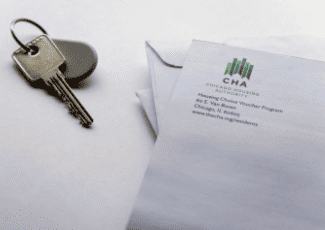New Regs: Tenants Win, Landlords Pay
“SmartRegs” Provide Windfall for Tenants at Landlords’ Expense
While homeowners await the promised Stimulus subsidies and tax breaks for energy upgrades, it is landlords who have become the target of regulations across the country designed to lower tenants’ energy waste.
Only, in this case, there are no subsidies or tax breaks on the horizon.
The frosty college town of Boulder, Colorado is up to its Birkenstocks in controversy over a new proposal that makes energy use the landlord’s affair.
Dubbed “SmartRegs”, the new proposal requires landlords to upgrade to a pre-set level of energy efficiency, or participate in phased-in upgrades based on a point system, in order to renew a rental license in the city.
Boulder’s case is unique because nearly 60% of all city housing is rentals.
This proposal is similar in spirit to a plan we reported last year to hold landlords accountable for tenant utility bills when the tenant does not pay. Philadelphia allowed for its utility provider to file liens against the rental property, rather than go after the delinquent tenant. See Landlord Liable for Tenants’ Utilities.
Many cities around the country are focusing on landlords because rental property owners have no real incentive to pressure tenants to cut their utilities bills. Landlords have little control over tenants who choose to sleep with the windows open, or leave the lights on when the place is empty.
But these other model programs offer some incentives to the landlords to participate in the upgrades by way of discounts or rebates.
Boulder has yet to add that in.
The city argues that going ‘green’ will attract tenants. Clearly, tenants will benefit from property upgrades via lower bills, and the city moves closer to meeting its lofty greenhouse emissions standards. But still, it’s the landlords who pay directly for these ancillary benefits.
While there are some options for incentives, existing programs tend to favor the indigent homeowner, or renters themselves who fall within low income guidelines. One option is to lower rent payments in exchange for the tenant’s entitlements. Otherwise, landlords are saying “show me the money” before they throw their support behind this new program.
A spokesperson for a local rental housing association has pointed to the concern that while the program will cost an average of $1,000 per landlord, there’s no real way to gauge how much has to happen in order to see any discernible reduction in energy bills or greenhouse emissions.
Also, landlords in need of upgrades may have a limited number of city-approved contractors to choose from, which can drive up costs, and drag out the rental license renewal process.
See our feature, Making Every Dollar Count: Money Saving Tip for Landlords.
American Apartment Owners Association offers discounts on products and services for landlords related to your real estate investment including REAL ESTATE FORMS, tenant debt collection, tenant background checks, insurance and financing. Find out more at joinaaoa.
To subscribe to our blog, click here.















 Accessibility
Accessibility